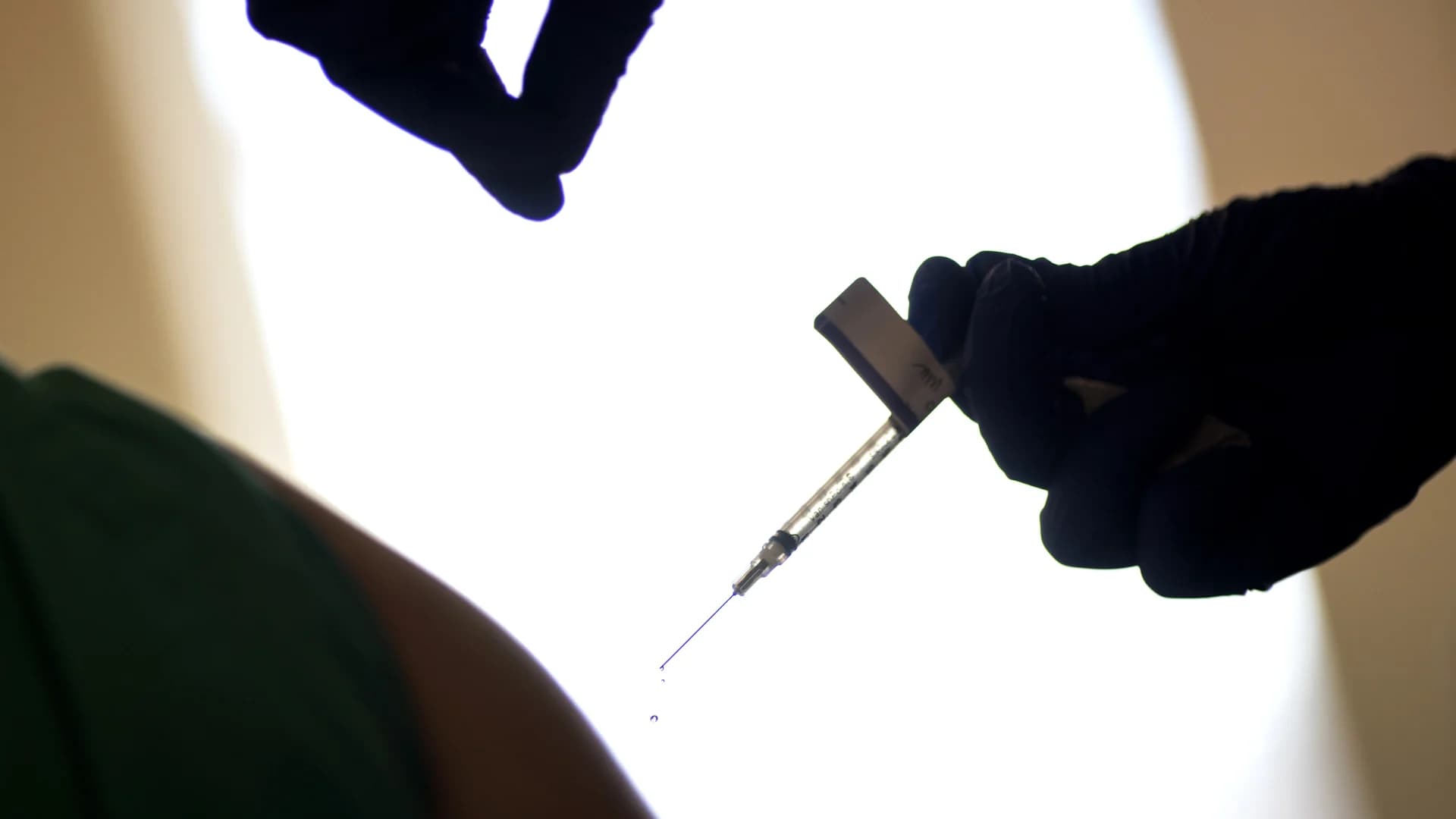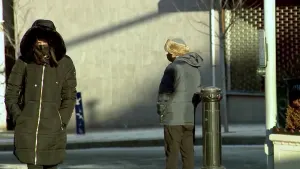More Stories

Yes, there is a chance you can still get infected with COVID-19 after you've been vaccinated. The CDC says although the vaccine is very effective, it is not 100% effective - like all other vaccines. Here are some of the agency's information on so-called "breakthrough' cases. Below text is provided by the CDC.
A small percentage of people fully vaccinated against COVID-19 will still develop COVID-19 illness
COVID-19 vaccines are effective. However, a small percentage of people who are fully vaccinated will still get COVID-19 if they are exposed to the virus that causes it. These are called “vaccine breakthrough cases.” This means that while people who have been vaccinated are much less likely to get sick, it may still happen. Experts continue to study how common these cases are.
Large-scale clinical studies found that COVID-19 vaccination prevented most people from getting COVID-19. Research also provides growing evidence that mRNA COVID-19 vaccines offer similar protection in real world conditions. While these vaccines are effective, no vaccine prevents illness 100 percent of the time. For any vaccines, there are breakthrough cases. With effectiveness of 90 percent or higher, a small percentage of people who are fully vaccinated against COVID-19 will still get sick and some may be hospitalized or die from COVID-19. It’s also possible that some fully vaccinated people might have infections, but not have symptoms (asymptomatic infections).
Other reasons why fully-vaccinated people might get COVID-19
It’s possible a person could be infected just before or just after vaccination and still get sick. It typically takes about 2 weeks for the body to build protection after vaccination, so a person could get sick if the vaccine has not had enough time to provide protection.
New variants of the virus that causes COVID-19 illness are spreading in the United States. Current data suggest that COVID-19 vaccines authorized for use in the United States offer protection against most variants. However, some variants might cause illness in some people after they are fully vaccinated.
If you get COVID-19 after vaccination, your symptoms might be less severe
Even though a small percentage of fully vaccinated people will get sick, vaccination will protect most people from getting sick. There also is some evidence that vaccination may make illness less severe in people who get vaccinated but still get sick. Despite this, some fully vaccinated people will still be hospitalized and die. However, the overall risk of hospitalization and death among fully vaccinated people will be much lower than among people with similar risk factors who are not vaccinated.
CDC is monitoring COVID-19 vaccine breakthrough cases for patterns
CDC is working with state and local health departments to investigate COVID-19 vaccine breakthrough cases. The goal is to identify any unusual patterns, such as trends in age or sex, the vaccines involved, underlying health conditions, or which of the SARS-CoV-2 viruses made these people sick. To date, no unusual patterns have been detected in the data CDC has received.
CDC: COVID-19 vaccines are an essential tool to protect people against COVID-19 illness, including new variants
COVID-19 vaccines help protect people who are vaccinated from getting COVID-19 or getting severely ill from COVID-19, including reducing the risk of hospitalization and death. CDC recommends you get a COVID-19 vaccine as soon as one is available to you. However, because people can still get sick and possibly spread COVID-19 to others after being fully vaccinated, CDC recommends people continue to take everyday actions to protect themselves and others, like wearing a mask, maintaining an appropriate distance from others, avoiding crowds and poorly ventilated spaces, and washing hands often.
More from News 12
1:31

What's Cooking: Uncle Giuseppe's Marketplace's prime rib roast
1:27

What's Cooking: Uncle Giuseppe's quiche lorraine
2:34

Guide: Safety tips to help prevent home burglaries
0:48

How to protect yourself against frostbite during arctic chill
2:19

Guide: Safety measures to help prevent fires and how to escape one
2:07
